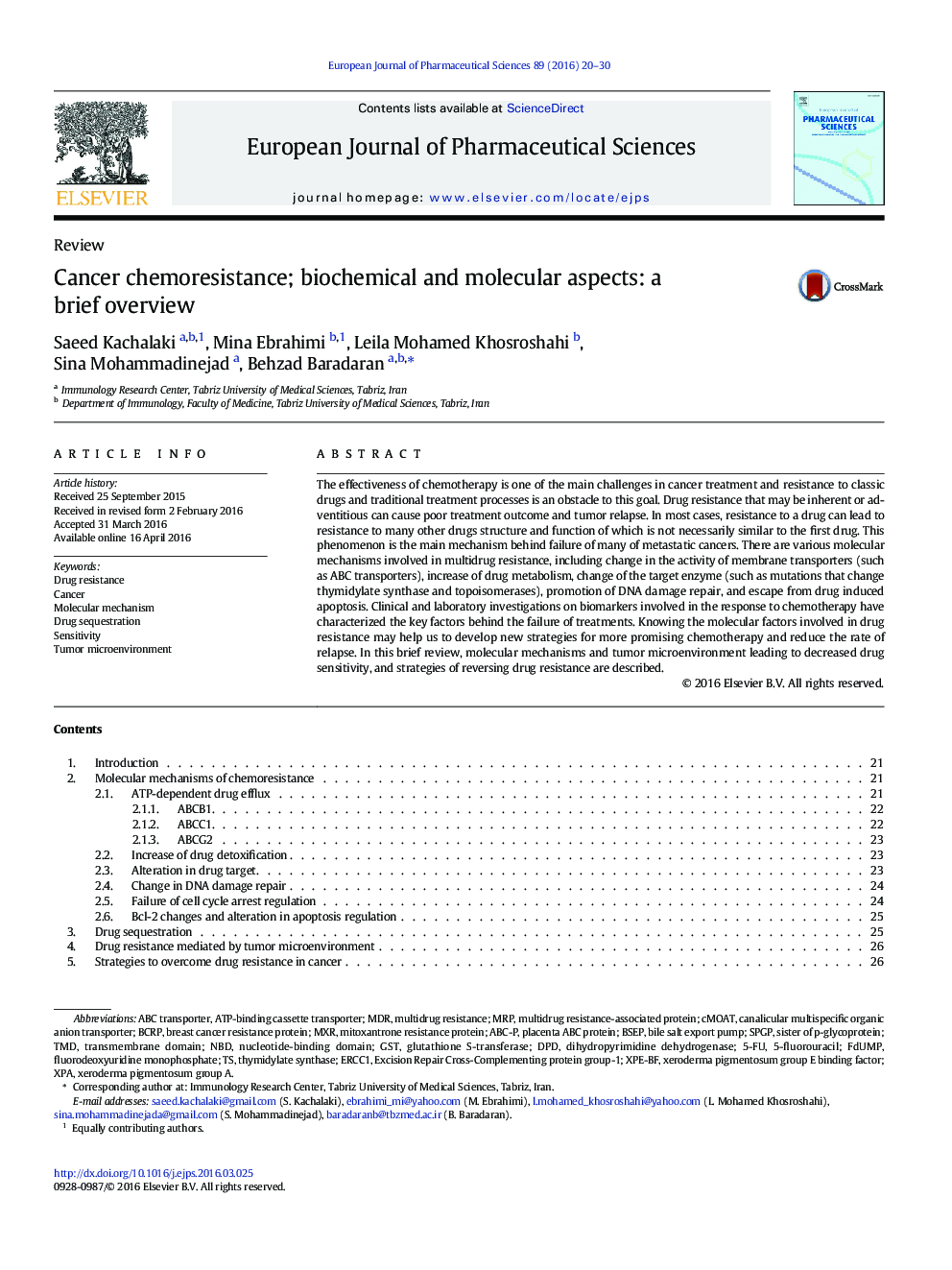| کد مقاله | کد نشریه | سال انتشار | مقاله انگلیسی | نسخه تمام متن |
|---|---|---|---|---|
| 2480037 | 1556161 | 2016 | 11 صفحه PDF | دانلود رایگان |
The effectiveness of chemotherapy is one of the main challenges in cancer treatment and resistance to classic drugs and traditional treatment processes is an obstacle to this goal. Drug resistance that may be inherent or adventitious can cause poor treatment outcome and tumor relapse. In most cases, resistance to a drug can lead to resistance to many other drugs structure and function of which is not necessarily similar to the first drug. This phenomenon is the main mechanism behind failure of many of metastatic cancers. There are various molecular mechanisms involved in multidrug resistance, including change in the activity of membrane transporters (such as ABC transporters), increase of drug metabolism, change of the target enzyme (such as mutations that change thymidylate synthase and topoisomerases), promotion of DNA damage repair, and escape from drug induced apoptosis. Clinical and laboratory investigations on biomarkers involved in the response to chemotherapy have characterized the key factors behind the failure of treatments. Knowing the molecular factors involved in drug resistance may help us to develop new strategies for more promising chemotherapy and reduce the rate of relapse. In this brief review, molecular mechanisms and tumor microenvironment leading to decreased drug sensitivity, and strategies of reversing drug resistance are described.
Figure optionsDownload high-quality image (155 K)Download as PowerPoint slide
Journal: European Journal of Pharmaceutical Sciences - Volume 89, 30 June 2016, Pages 20–30
